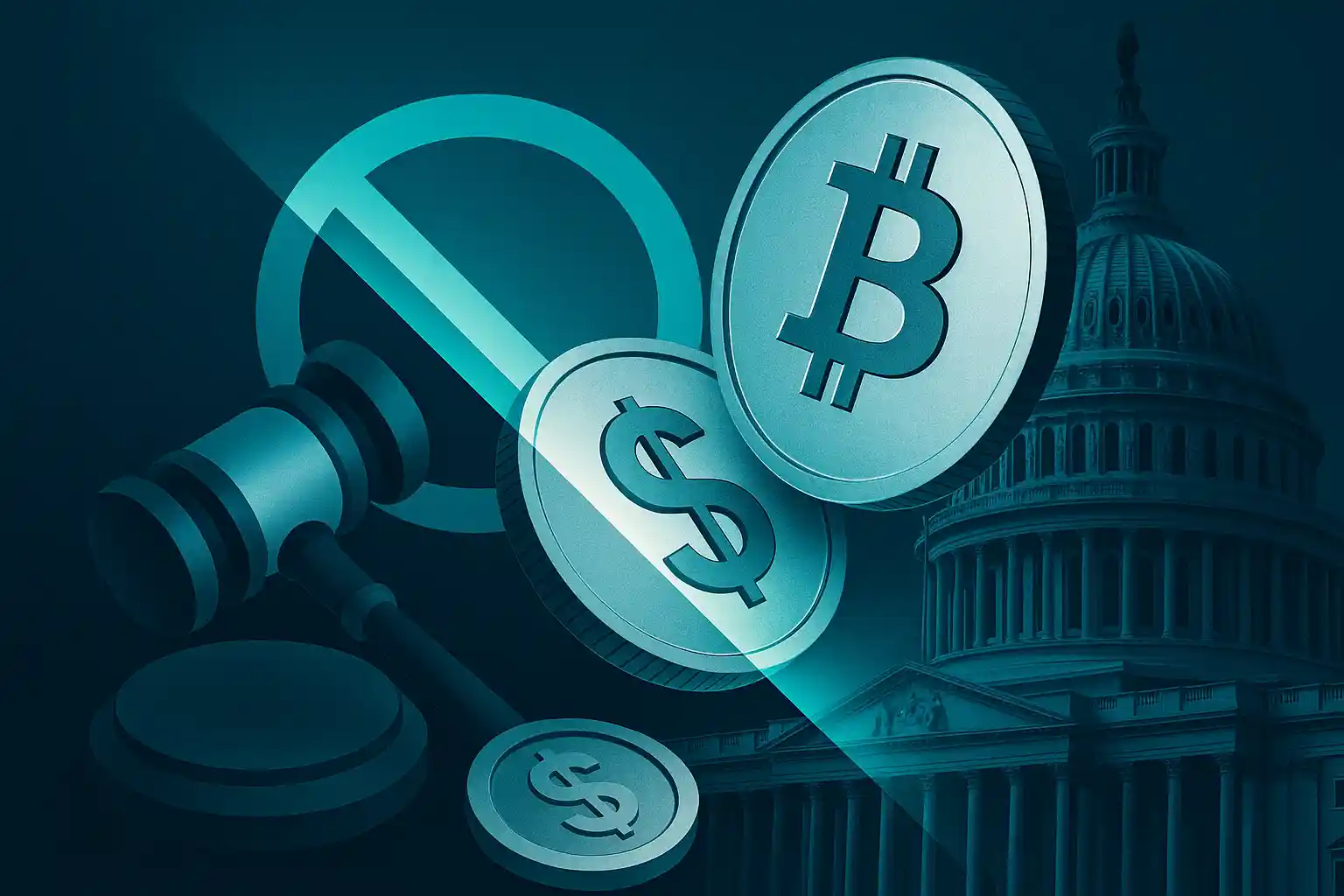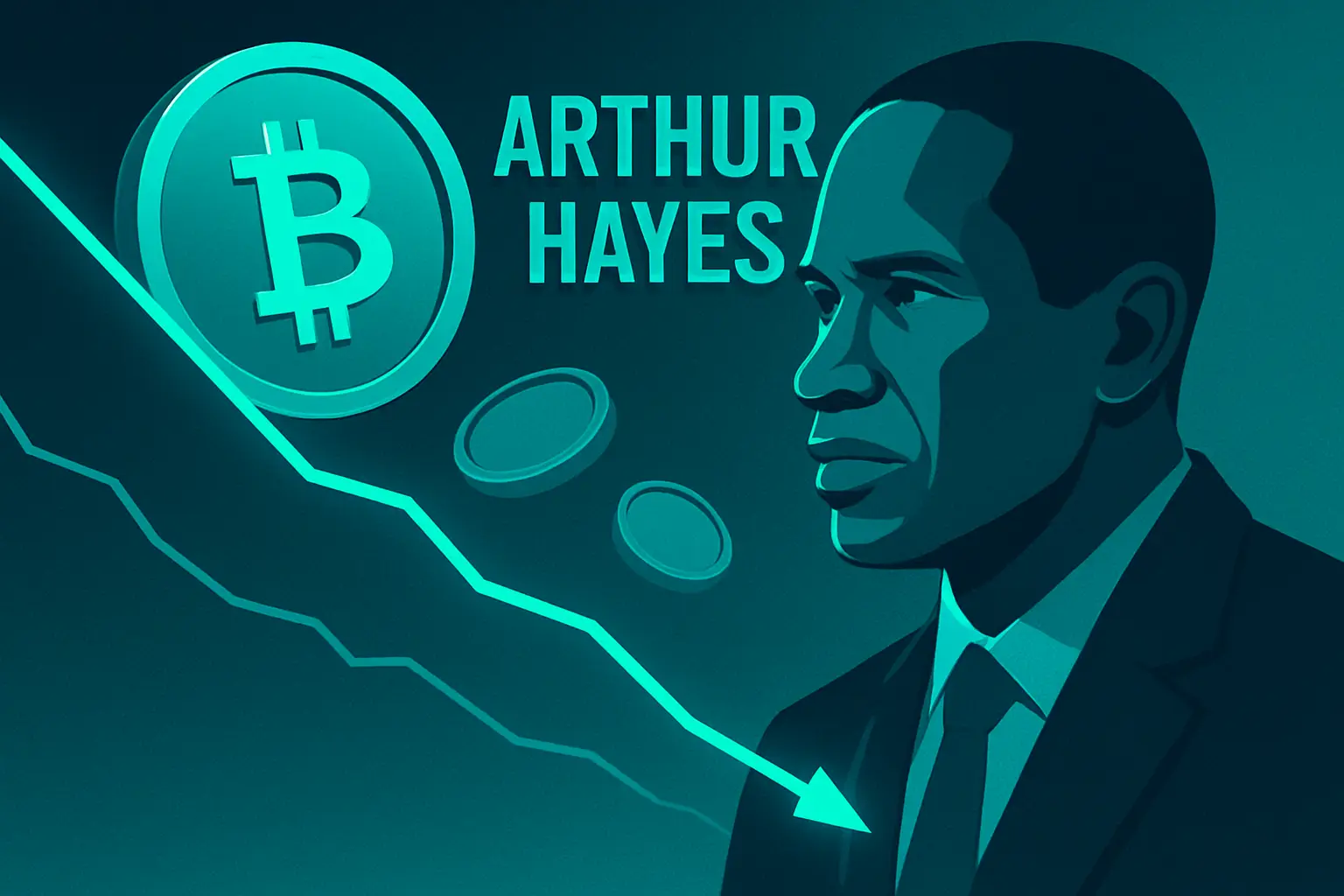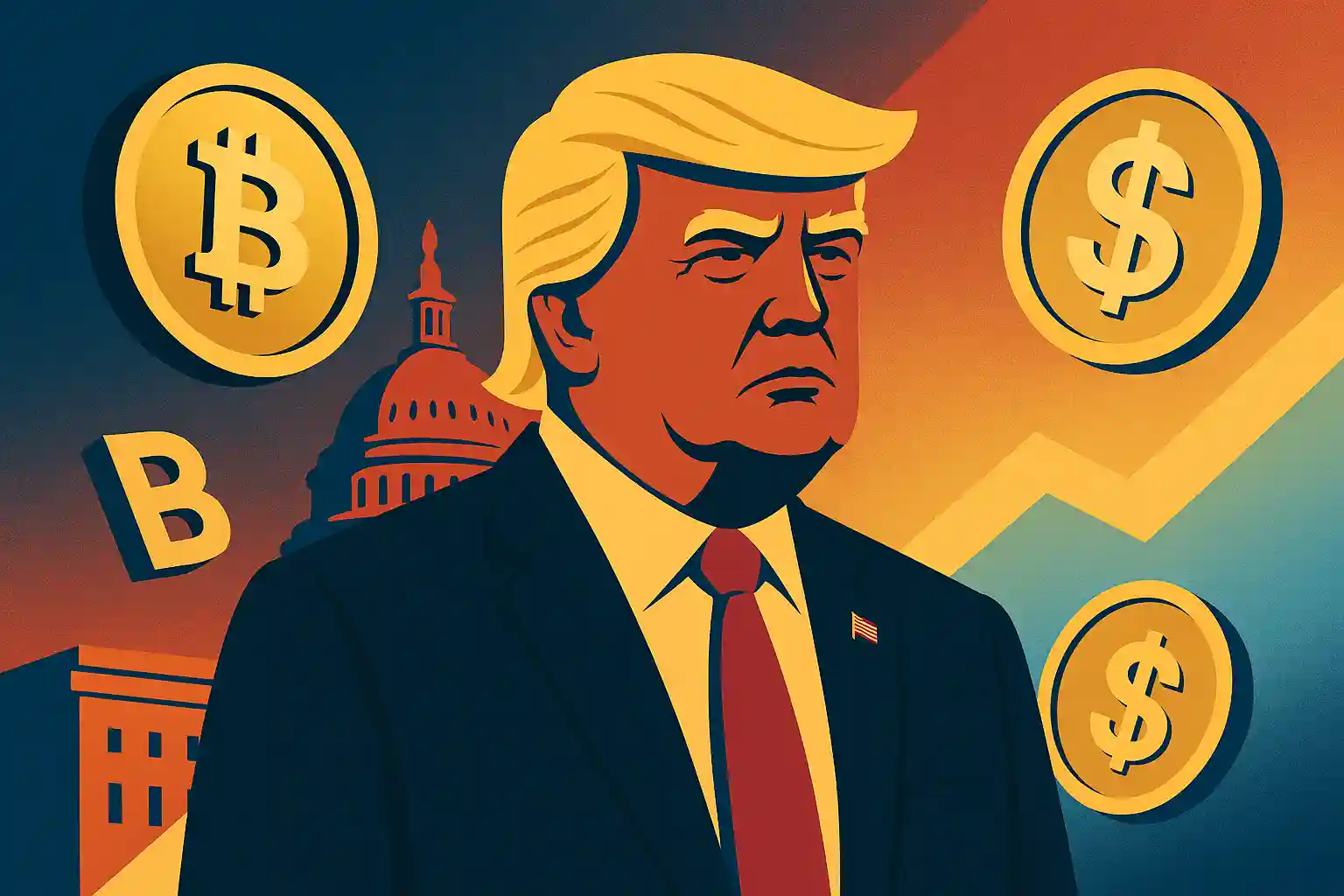US Representative Proposes Banning Crypto Trading for President and Congress Members

In Brief
Rep. Ro Khanna introducing resolution to ban President, family members, and Congress from trading cryptocurrencies, stocks, and accepting foreign funds.
Proposal follows Trump’s pardon of Binance founder Changpeng Zhao, sparking controversy over political-crypto industry connections and potential conflicts of interest.
Khanna maintains “strongly supportive” A-grade rating from Stand With Crypto despite pushing ethics restrictions, contrasting with Warren and Waters’ F-grades.
Trump family’s World Liberty Financial stablecoin launch and crypto PAC donations totaling millions fuel concerns about blurred lines between policy and profit.
Resolution represents growing scrutiny of politician crypto holdings amid regulatory power over industry worth hundreds of billions in market capitalization.
US Representative Ro Khanna is expected to introduce a Congressional resolution today that would prohibit the President, immediate family members, and members of Congress from trading cryptocurrencies and stocks while banning acceptance of foreign funds during their tenure. The proposal arrives amid intensifying public scrutiny over President Donald Trump’s decision to pardon Binance founder Changpeng Zhao and broader concerns about politicians profiting from industries they regulate.
The timing reflects mounting frustration with the intersection of political power and financial interests, particularly as Trump family ventures like World Liberty Financial launch crypto products while the administration makes policy decisions affecting the digital asset industry.
Khanna Targets Crypto Alongside Traditional Assets
The proposed resolution takes a comprehensive approach to political trading restrictions by encompassing both cryptocurrencies and traditional stocks—recognizing that conflict-of-interest concerns extend across asset classes when officials hold regulatory or legislative power over the industries they’re invested in.
Khanna first announced the initiative over the weekend through social media and has since elaborated on his reasoning through televised interviews. His framing positions the measure as addressing what he characterizes as unprecedented corruption stemming from the current administration’s financial entanglements.
“We have a president who is enriching himself and his family in an obscene wealth that is unprecedented in American history. People need to wake up to what’s going on– it’s corruption right before our very eyes,” Khanna stated during an MSNBC interview.
The California representative has consistently advocated for banning stock trading by politicians and prohibiting campaign contributions from PACs and lobbyists throughout his tenure. This latest proposal represents an expansion of those ethics-focused efforts specifically triggered by recent developments in the crypto policy space.
Notably, Khanna’s office has not yet released detailed legislative text, leaving specifics about enforcement mechanisms, exemptions, or transition periods for existing holdings unclear. The absence of published details means the proposal’s practical implementation remains uncertain even as the political messaging generates attention.
CZ Pardon Serves as Immediate Catalyst
Trump’s decision last week to pardon Binance founder Changpeng Zhao for violating US anti-money laundering laws provided the immediate catalyst for Khanna’s resolution. The pardon divided observers, with some viewing it as correcting excessive prosecution of the crypto industry while others interpreted it as political favoritism toward a foreign billionaire who cultivated relationships with the Trump family.
Khanna aligned firmly with the latter interpretation, characterizing the pardon as transactional rather than principled. His critique focuses on the timing and circumstances surrounding CZ’s clemency request relative to Binance’s support for Trump family business ventures.
“You’ve got a foreign billionaire who was basically engaged in money laundering, having money go to Hamas, Iran, and child abusers. He was convicted and served four months in prison. And then he petitions for a pardon… and what he does is he says, ‘I’m going to support World Liberty’… which they’re making millions of dollars on while Donald Trump is President,” Khanna explained in another MSNBC interview.
The reference to World Liberty Financial—the Trump family-backed crypto venture that launched its own stablecoin—highlights the specific concern driving the proposal: political figures making policy decisions affecting industries where they or their families hold direct financial interests.
CZ served four months in prison following his guilty plea to anti-money laundering violations before receiving the presidential pardon. The relatively brief incarceration for serious financial crimes combined with the pardon’s timing raised questions about whether political connections influenced the outcome.
Khanna’s Pro-Crypto Stance Creates Nuanced Position
What distinguishes Khanna’s proposal from typical Democratic criticism of crypto industry ties to Trump is his generally favorable position on cryptocurrency technology and innovation. Stand With Crypto—an advocacy organization closely affiliated with Coinbase—currently rates Khanna as “strongly supportive” with an A-grade for his cryptocurrency policy positions.
This rating sharply contrasts with prominent Democratic critics of Trump’s crypto connections. Senator Elizabeth Warren and Representative Maxine Waters—both outspoken opponents of the President’s industry relationships—hold F-grades from the same organization, reflecting their skeptical or hostile stances toward cryptocurrency broadly.
Khanna’s simultaneous support for crypto innovation and push for strict ethics guardrails represents a more nuanced position than simply opposing the industry. His framework appears to be: cryptocurrency technology merits support and appropriate regulation, but politicians shouldn’t personally profit from the sector while making policy decisions affecting it.
This distinction matters because it separates concerns about conflict of interest from concerns about cryptocurrency itself. Khanna’s position suggests that proper ethics frameworks could allow pro-crypto policy without the appearance or reality of self-dealing—a middle ground between uncritical industry embrace and blanket opposition.
However, the practical challenge becomes defining where legitimate policy support for innovation ends and self-interested favoritism begins. Without clear boundaries, even well-intentioned officials risk appearing compromised when their policy positions align with their financial interests.
Trump Family Crypto Ventures Blur Policy-Profit Lines
The growing portfolio of Trump family crypto ventures creates the conflict-of-interest scenarios that Khanna’s resolution attempts to address. World Liberty Financial’s stablecoin launch represents direct entry into the digital asset market by a venture bearing the President’s family name while that same administration makes regulatory and policy decisions affecting stablecoin frameworks.
Trump’s campaign and affiliated political action committees have received millions in donations from crypto industry participants, creating questions about whether policy positions reflect industry advocacy or genuine belief in technology’s merits. The scale of these contributions—substantial even by political fundraising standards—suggests the industry views access to the administration as valuable enough to warrant significant capital deployment.
Reports of World Liberty Financial’s involvement in crypto-related deals with the United Arab Emirates that allegedly coincided with favorable US policy decisions regarding AI chip technology access add another dimension to concerns. If accurate, such coordination would represent the type of quid pro quo arrangements that ethics rules aim to prevent.
The American Bitcoin venture—another Trump family-backed crypto entity that recently announced holdings of 3,865 BTC worth approximately $4.5 billion—further expands the family’s financial exposure to cryptocurrency markets while the administration influences regulatory approaches to digital assets.
Collectively, these ventures create a web of financial interests where Trump family entities stand to profit or lose substantially based on crypto policy decisions made by an administration led by the family patriarch. This concentration of policy power and financial interest in the same individuals or family represents precisely the conflict-of-interest scenario that ethics frameworks traditionally prohibit.
Enforcement Challenges and Political Feasibility
Even if Khanna’s resolution gains traction, implementing effective restrictions on political crypto trading faces substantial practical challenges. Cryptocurrency’s pseudonymous nature and the existence of privacy-focused tokens make verification of compliance more difficult than with traditional stock holdings that require disclosure through established financial institutions.
Politicians could potentially hold crypto assets through intermediaries, use privacy coins to obscure holdings, or structure ownership through entities that obscure direct control—circumvention strategies that would require sophisticated monitoring to detect. The decentralized nature of cryptocurrency markets means that traditional financial oversight mechanisms may not capture all relevant activity.
The resolution’s political feasibility also remains uncertain. Republicans controlling Congress are unlikely to advance legislation restricting their party’s President, while even Democratic support may not be unanimous given varying positions on cryptocurrency and ethics restrictions more broadly.
Previous attempts to ban Congressional stock trading have failed despite public support, suggesting that politicians often resist restrictions on their own financial activities regardless of apparent conflicts of interest. Cryptocurrency trading bans face the additional challenge of being newer and less understood by many lawmakers who would need to vote on restrictions.
Broader Context of Regulatory Power Over Crypto
The significance of political crypto trading restrictions extends beyond individual ethics concerns to encompass the broader regulatory power politicians hold over an industry worth hundreds of billions in market capitalization. Regulatory decisions around classification of tokens as securities, taxation frameworks, stablecoin requirements, and exchange licensing can materially impact valuations across the entire sector.
When politicians hold substantial cryptocurrency positions, their regulatory decisions face inevitable questions about whether policy choices reflect public interest or self-interest. Even when decisions are made in good faith, the appearance of conflict undermines public trust in the regulatory process.
The crypto industry’s relative novelty compared to traditional finance means regulatory frameworks remain actively under development rather than well-established. This dynamic regulatory environment creates more opportunities for officials to shape rules in ways that could benefit their holdings—whether intentionally or unconsciously—compared to mature industries where regulations are relatively settled.
Congressional committee assignments become particularly sensitive when members hold crypto assets while serving on panels overseeing financial services or technology policy. These members directly influence legislation and conduct oversight of agencies regulating the industry, creating direct channels through which personal financial interests could influence policy outcomes.
International Comparison Reveals US Lags on Political Trading Rules
Many developed democracies impose stricter restrictions on political trading than currently exist in the United States, including comprehensive bans on holding assets in industries officials regulate. The UK, Canada, and several European nations require politicians to divest conflicting holdings or place them in blind trusts that prevent knowledge of specific positions.
The US relies more heavily on disclosure requirements rather than outright prohibitions, operating under the theory that transparency allows public scrutiny to police conflicts. However, this approach assumes voters have capacity and inclination to monitor disclosures and hold officials accountable—assumptions that may not reflect reality in complex financial markets like cryptocurrency.
Khanna’s proposed ban would bring US policy closer to international standards if enacted, though implementation details would determine whether it matches the effectiveness of foreign systems that have operated longer and refined approaches through experience.
What the Resolution Signals About Crypto Policy Evolution
Beyond its immediate target of restricting political trading, Khanna’s resolution signals broader evolution in how policymakers are approaching cryptocurrency’s intersection with governance. The move represents recognition that crypto has matured from niche speculation to mainstream financial market with sufficient scale to create meaningful conflict-of-interest risks.
Early in cryptocurrency’s development, few politicians held significant positions and the industry’s market capitalization was small enough that personal holdings rarely created material conflicts. As crypto has grown to rival traditional financial sectors in scale, the potential for conflicts has expanded proportionally.
The resolution also reflects growing public awareness of and concern about political-crypto connections that might have passed unnoticed years ago. Trump’s high-profile family crypto ventures and industry donations bring unprecedented attention to issues that previously occurred with less visibility.
Whether this resolution advances or not, the debate it generates will likely influence how future politicians approach crypto holdings and how regulatory frameworks address conflicts between policy power and personal financial interests. The direction this conversation takes could significantly shape both crypto policy and broader ethics standards for years to come.
For now, Khanna’s proposal represents one lawmaker’s attempt to draw clear ethical lines in territory where boundaries remain poorly defined. The reception it receives from colleagues and public will indicate whether such restrictions gain momentum or remain isolated advocacy from individual members concerned about blurring lines between political power and personal profit.
Missed buying crypto at the market bottom?
No worries, there's a chance to win in crypto casinos! Practice for free and win cryptocurrency in recommended casinos! Our website wheretospin.com offers not only the best casino reviews but also the opportunity to win big amounts in exciting games.
Join now and start your journey to financial freedom with WhereToSpin!
Middle East
wheretospininkuwait.com provides a comprehensive selection of trusted online casino reviews for the Middle East أفضل كازينو على الإنترنت. The platform features well-established casinos supporting crypto deposits in the region, including Dream Bet, Haz Casino, Emirbet, YYY Casino, and Casinia.
South Africa and New Zealand
In the South African online casino market, wheretospin.co.za highlights top-rated platforms and online casinos such as True Fortune Casino and DuckyLuck. Meanwhile, for New Zealand players, wheretospin.nz showcases highly recommended casinos, including Casinia, Rooster.bet, and Joo Casino.







